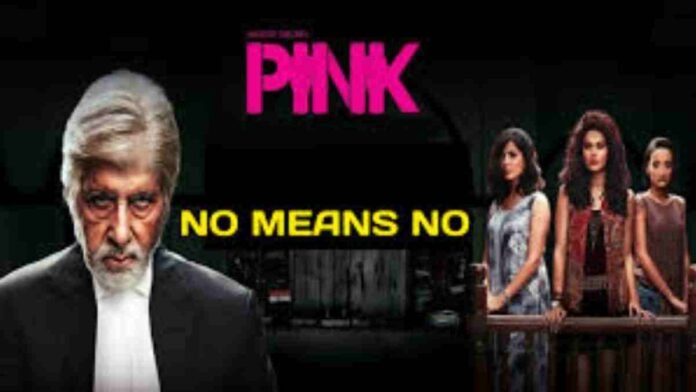Bollywood, with its rich weaving of narrative storytelling, can influence societal views and behaviours. Among its many offerings, some dialogues stand out not only for their cinematic impact but also for their deep messages about society. As India grapples with issues of gender respect, consent and violence, the lessons embedded in these dialogues become increasingly significant. They provide valuable insights into respecting women, understanding consent, and preventing sexual violence.
“No means No.”
Translation: “No means no.”
Explanation: This straightforward dialogue underscores the fundamental principle of consent. It serves as a clear and unequivocal reminder that if a woman says “no,” it must be respected without question. This is crucial in preventing sexual violence and ensuring that boundaries are always honoured.
“Agar tum yeh samajhti ho ki tumhe ye karne ka haq hai, to tumhe yeh bhi samajhna hoga ki tumhe iske liye saza bhi milegi.”
Translation: “If you believe you have the authority to do this, then you must also understand that you will face a punishment for it.”
Explanation: This dialogue, addresses themes of women’s rights, consent, and the legal system’s treatment of sexual offenses. This line reinforces the concept that disrespecting women’s autonomy and committing offenses against them will have serious consequences.
“Ek ladki ko galat samajhna, ek aurat ko izzat na dena, ek aise soche ki hai jo humein door le ja rahi hai.”
Translation: “Misunderstanding a girl, not giving a woman respect, is a mindset that is taking us backwards.”
Explanation: It reflects on the regressive attitudes that perpetuate disrespect and highlights the importance of changing these attitudes to move forward as a society.
“Yeh zaroori nahi ki ek aurat ko uski marzi ke bina kuch karne ke liye kaha jaye, uski khud ki marzi bhi ahmiyat rakhti hai.”
Translation: “It is not necessary to compel a woman to do something against her will; her own will is important.”
Explanation: This dialogue reinforces the principle of consent and highlights that a woman’s autonomy, respect and personal choices should be respected at all times.
“Agar ek ladki apni marzi se kuchh karti hai toh usko ‘easy’ kehkar uska mazak mat udaao. Uski izzat karo, use apni barabar samjho.”
Translation: “If a girl does something of her own choice, don’t call her ‘easy’ and make fun of her. Respect her, consider her as your equal.”
Explanation: This dialogue condemns derogatory judgments based on a woman’s choices and promotes the respect she deserves. It emphasizes treating women as equals and rejecting the objectification or belittlement of their personal decisions.
Conclusion
The Bollywood industry dialogues often reflect social norms and can be effective tools for educating people about significant problems. Recognizing and absorbing these dialogues allows men to contribute to a culture of respect and equality, ultimately preventing violence and guaranteeing that women are treated with the respect they deserve. Respect is more than just actions; it is about the mindset and values that motivate those actions. By embracing these lessons, we can work toward a safer and more equitable society for all.



